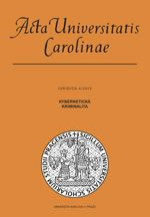Unijní občanství a antidiskriminační právo EU
EU Citizenship and EU Anti-Discrimination Law
Author(s): Harald Christian ScheuSubject(s): Law, Constitution, Jurisprudence
Published by: Univerzita Karlova v Praze, Nakladatelství Karolinum
Keywords: migration; citizenship; discrimination; reciprocity; human rights; EU law
Summary/Abstract: The following article deals with the relationship between EU citizenship and EU antidiscrimination law. The analysis focuses on the definition and the delimitation of EU citizenship in relation to the position of nationals in the Member States and to the status of third-country nationals. The prohibition of discrimination on grounds of nationality, which is a key principle of European integration, is limited to the scope of EU law. The constant expansion of this scope in the context of reform treaties and ECJ case-law has led, over the years, to an approximation of the status of EU citizens and the status of national citizens, especially in the areas of residence, access to the labour market and social security. Parallel to this development, an approximation of the position of EU citizens to the status of third-country nationals has occurred. The basis for this development is, on the one hand, in the standards of secondary legislation, which regulates e.g. the rights of long-term residents and refugees. On the other hand, this development has been inspired by the human rights principle of equality, as expressed e.g. in the European Convention on Human Rights and the International Human Rights Covenants. As a result, it can be noted that the delimitation of EU citizenship in both directions, i.e. in the direction of classical citizenship, and in the direction of third-country nationals, is subject to constant change and cannot be drawn precisely. On a conceptual level, there is a conflict between three major models, first, the construction of the social contract as a contract between citizens, secondly, the reciprocity principle as the basis for the non-discrimination principle in EU law and, last but not least, the idea of general equality, which is laid down in international human rights norms. The concrete implementation of these different approaches is problematic under current EU law. Activist approaches, however well-intentioned, may weaken the authority of the entire system of equality and nondiscrimination and, thus, negatively affect the concept of EU citizenship as such.
Journal: Acta Universitatis Carolinae Iuridica
- Issue Year: 59/2013
- Issue No: 2
- Page Range: 15-32
- Page Count: 8
- Language: Czech

